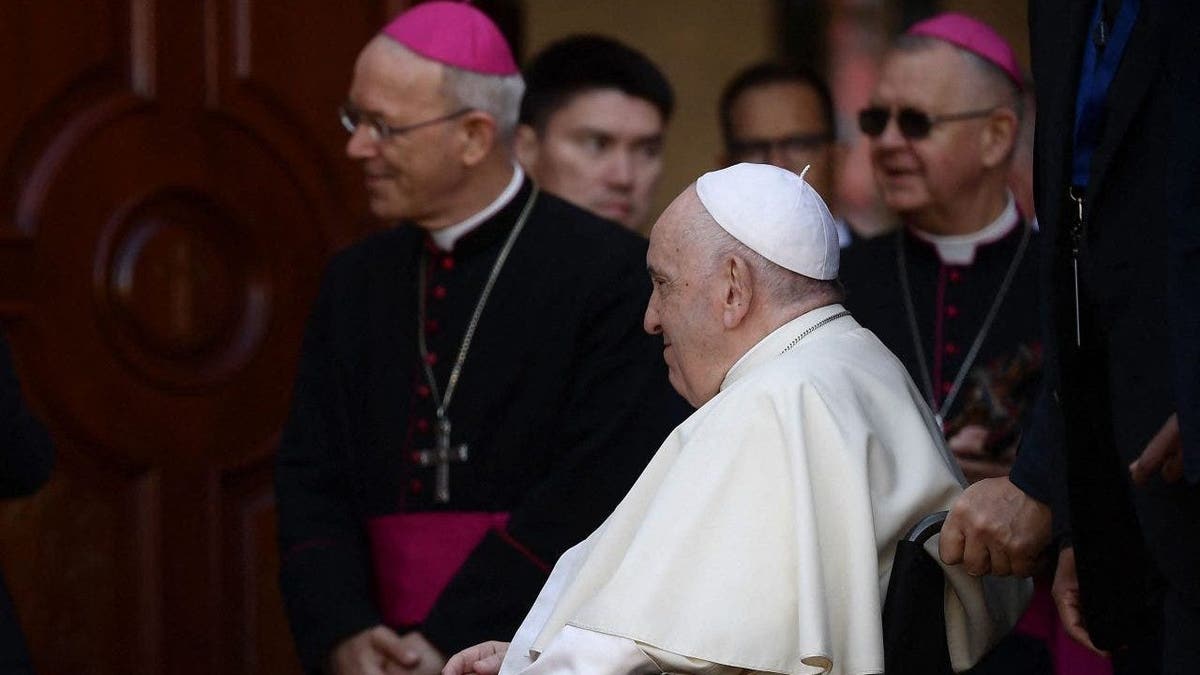Catholic bishops around the world push back on blessings for people in same-sex relationships
Catholic bishops in conservative countries are pushing back on the Vatican’s document allowing blessings for individuals in same-sex relationships.
Episcopal conferences in African nations have been the most vocal prelates opposed to the implementation of “Fiducia supplicans” — the document which approved pastoral blessings given to people in same-sex relationships under strict parameters.
“In order to avoid any pastoral confusion and ambiguity as well as not to break the law of our country which forbids same sex unions and activities, and while listening to our cultural heritage which does not accept same sex relationships, the Conference guides that the Declaration from the Dicastery for the Doctrine of the Faith of December 18th 2023 concerning the blessing of same-sex couples be taken as for further reflection and not for implementation in Zambia,” said the Zambia Episcopal Conference.
“Fiducia supplicants” reaffirmed the Catholic Church’s inability to change the sacrament of marriage, which it defines as an “exclusive, stable, and indissoluble union between a man and a woman, naturally open to the generation of children.”
CATHOLIC CHURCH’S TEACHING ON MARRIAGE ‘HAS NOT CHANGED’ AFTER VATICAN DOCUMENT, US BISHOPS SAY
It did, however, carve out allowances for “spontaneous” blessings given to individuals in same-sex relationships who are seeking to lead more moral lives. It also clarifies that the “union” between two members of the same sex cannot be blessed — only the individuals themselves.
The majority of bishops in the United States and abroad have vouched for the accuracy of the document’s language, saying it is theologically in line with church teaching and tradition.
However, bishops critical of the text have accused the Vatican of allowing too much ambiguity in the guidelines, and others have rejected the text outright.
POPE FRANCIS ALLOWS PRIESTS TO BLESS SAME-SEX COUPLES

The Episcopal Conference of Malawi wrote in a letter, “to avoid creating confusion among the faithful we direct that for pastoral reasons, blessings of any kind and for same sex unions of any kind are not permitted in Malawi.”
Bishop Athanasius Schneider, who serves as an auxiliary bishop in Astana, Kazakhstan, took perhaps the harshest tone against the document in a letter posted to social media.
“The fact that the document does not give permission for the ‘marriage’ of same-sex couples should not blind pastors and faithful to the great deception and the evil that resides in the very permission to bless couples in irregular situations and same-sex couples,” wrote Schneider. “Such a blessing directly and seriously contradicts Divine Revelation and the uninterrupted, bimillenial doctrine and practice of the Catholic Church.”
LATIN PATRIARCH SAYS PHOTOS SHOW BOMBED GAZA CONVENT AS WHITE HOUSE RAISES ‘CONCERNS’ WITH IDF
Schneider’s letter was co-signed by Metropolitan Archbishop Tomash Peta.
The Conference of Roman Catholic Bishops of Ukraine stated that it understood the document to be aligned with the Church’s understanding of marriage, but feared “confusion” and “misunderstandings.”
“While the entire document makes it clear that there is no ‘permission’ or ‘blessing’ for homosexual cohabitation or any life of sin, nor any change in the Church’s traditional teaching on marriage, the notion of blessing same-sex couples, or even sacramentally irregular couples, can be perceived as legalizing these relationships,” the Ukrainian bishops wrote.

The Catholic bishops of Ukraine, while critical of the document, did not indicate whether they would allow it to be implemented in the country.
“The document seeks to emphasize God’s boundless love for all people, sinners included, and in this regard to show that the Church does not reject these people, namely those with homosexual tendencies or even actions,” the Ukrainian conference wrote. “However, it seems that the text does not clearly show the distinction between the person and his or her manner, the merciful acceptance of the person and the express disapproval of his or her sin.”
Read the full article Here


